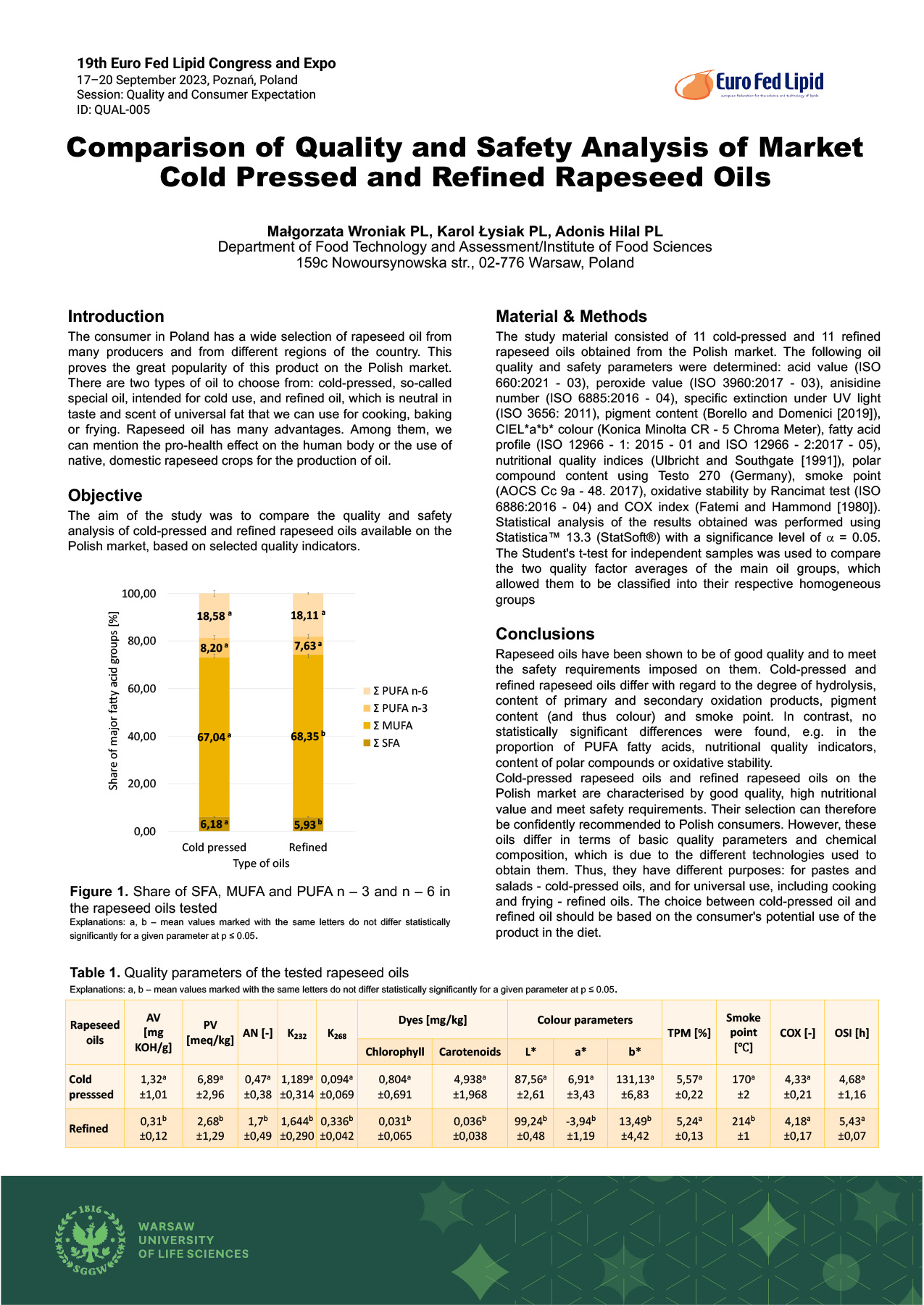Rapeseed oil (Brassica napus L.) is the most popular vegetable oil in Poland. Consumers value its versatility as well as its local, national origin. The aim of the study was to investigate the quality and safety of 11 cold – pressed and 11 rapeseed oils offered on the Polish market and 11 refined rapeseed oils, and to compare the two groups of oils. Contaminations originating in the technological process of obtaining refined oils, as well as those originating in the environment, during transport, or from the packaging, were taken into considerationIt was shown that the rapeseed oils are of good quality and meet the safety requirements. Cold – pressed and refined rapeseed oils differ with regard to the degree of hydrolysis, the content of primary and secondary oxidation products, the content of pigments (and thus colour) and the smoke point. However, there were no statistically significant differences in, among others, the proportion of PUFA fatty acids, nutritional quality indicators, the content of polar compounds or oxidative stability, among others. The detection of undesirable erucic acid in the tested oils is worrying. This was the case in two cold-pressed oils (4.51% and 3.33%). The values exceeded the level of 2% presence of erucic acid authorised by the European Community. A random oil analysis revealed that none of the analyzed rapeseed oils from the Polish market contained toxic metals, mycotoxins, dioxins and dioxin-like compounds, phthalates, or PAHs. Nonetheless, very low levels of 3-MCPD esters and glycidol esters were discovered in refined oils and saturated mineral oils (MOSH) in both pressed and refined oils. The presence of aromatic mineral oils (above the detection level of the method) in the tested oils was not detected. Therefore, we can confidently recommend their choice to Polish consumers. However, these oils differ in terms of basic quality parameters and chemical composition, which is due to different technologies of obtaining them. Therefore, they have a different purpose: for pastes and salads – cold-pressed oils, and for universal use, including cooking and frying – refined oils. The choice between cold-pressed oil and refined oil should be based on the potential use of this product by the consumer in the diet.
